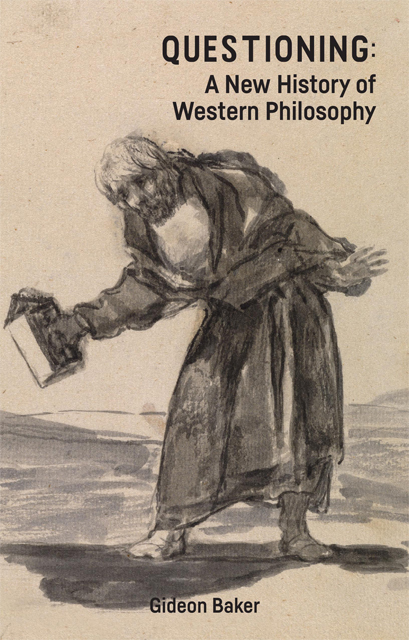2 - Diogenes
Published online by Cambridge University Press: 14 July 2023
Summary
THE CYNICS (FROM WHOM we get our word cynicism) saw themselves as Socrates’s children but, like many ambitious offspring, also sought to outdo their philosophical parent. The most legendary of the Cynics was Diogenes, who was born around fifty years after Socrates in either 412 or 404 BCE. If we were being strictly chronological, this chapter would deal with Plato before Diogenes (although contemporaries, Plato was the older of the two), but it is important to consider Plato and Aristotle side by side, so we will put Diogenes first. Mythological as aspects of the life of Diogenes as recorded by the tradition undoubtedly are, stories of him from generations of Cynics tell us much about the radical questioning of received wisdom that stood at the heart of the Cynic way of life in Greek antiquity.
Diogenes was indeed cynical. Yet he was not only critical. To the contrary, he demonstrated that questioning can also be affirmative: giving to the one who questions a freedom that those who live more conventional lives lack. After all, to question norms is also to raise the possibility of living without them. Crates, Diogenes’s ‘student’ (not that Cynics, having no school, really had students), is said to have rescued one Metrocles from despondency after Metrocles farted loudly while giving an important speech. Visiting this young man, who had locked himself away in shame, Crates, consuming a great pile of pulses, ‘farted in his turn’ and said: ‘it would have been quite a wonder if he had not released the trapped air as nature demanded‘ (Diogenes Laertius, Lives 6.94).
Another often-used example of the link between questioning and freedom in the Cynic tradition is the false freedom of sovereigns, who are sovereign only in name. While kings can only exercise their sovereignty by way of their dependence on a whole host of servants, courtiers and soldiers, the Cynic, renouncing all property and attachments, is dependent on nothing and no one. The Cynic, not the sovereign, is the true king. As Diogenes put it (referring to Philip II of Macedon, whose son, Alexander the Great, was tutored by Aristotle): ‘Aristotle breakfasts when Philip pleases and Diogenes when Diogenes pleases’ (Plutarch, On Exile 12.604d, in Hard 2012: 53).
- Type
- Chapter
- Information
- QuestioningA New History of Western Philosophy, pp. 21 - 30Publisher: Edinburgh University PressPrint publication year: 2022

